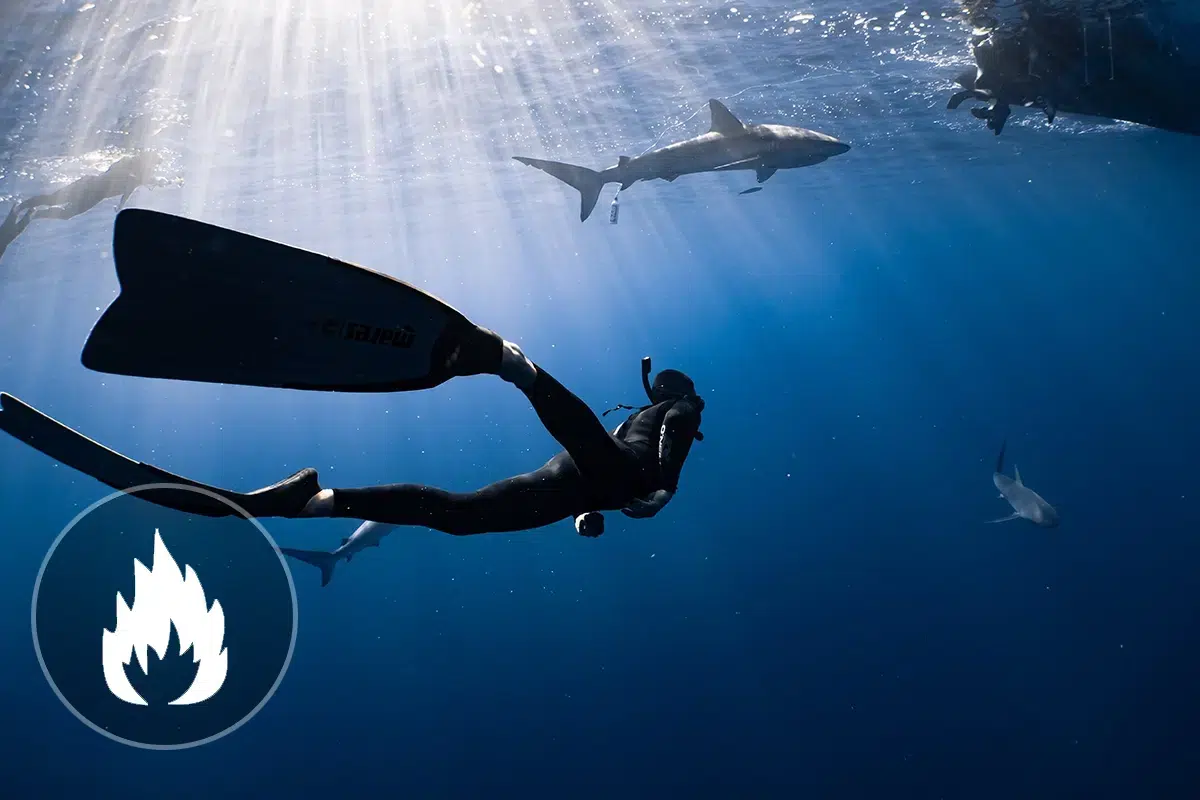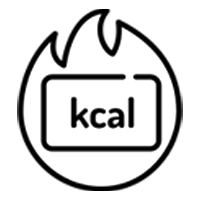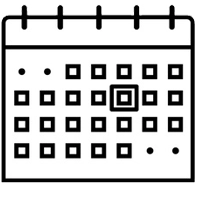Show summary Hide summary
How many calories do we burn with scuba diving?

Everything you need to know about scuba diving
🤿 Want to know how many calories you’re burning diving for 30 or 60 minutes? Simply input your diving duration and body profile. Our tool gives you a fast calorie estimate.
Scuba diving: A few examples of energy expenditure depending on weight and activity time.
The table below shows how many calories you lose by scuba diving!
Scuba diving
Moderate intensity
Expenditure in Kilocalories
| Weight | 15 minutes | 30 minutes | 1 hour |
|---|---|---|---|
| 40 kg | 74 | 147 | 294 |
| 50 kg | 92 | 184 | 368 |
| 60 kg | 110 | 221 | 441 |
| 70 kg | 129 | 257 | 515 |
| 80 kg | 147 | 294 | 588 |
| 90 kg | 165 | 331 | 662 |
See detailed calculations and metabolic equivalent for scuba diving
Everything you need to know about scuba diving
FIND OUT MORE ABOUT SCUBA DIVING
Scuba diving can be practiced with tanks or by snorkeling, which requires self-sufficiency in oxygen through apnea.
Scuba diving requires knowledge and training to avoid the many decompression accidents associated with deep-sea pressure.
Freediving, or apnea diving, is much more accessible, since you can start with just a mask and snorkel, and justlisten to your body. It’s also an ideal way to discover the seabed, even from the surface.
Some benefits of scuba diving:
- Exploring marine life: Freediving offers the chance to observe the beauty of marine life up close. As you swim along the water’s surface, you can admire colorful corals, tropical fish, turtles, rays and many other fascinating marine creatures.
- All-round physical activity: Freediving calls on many of the body’s muscles, including those of the legs, arms, trunk and shoulders. The swimming and flipping movements strengthen muscles and improve motor coordination.
- Cardiorespiratory stimulation: Freediving is an activity that requires good respiratory capacity. The physical effort associated with swimming and the need to hold one’s breath for short periods develop lung capacity and improve cardiorespiratory health.
- Relaxation and well-being: Immersion in water and the peaceful observation of marine life have a calming effect on the mind. Freediving can help reduce stress, promote relaxation and provide a sense of well-being.
- Connecting with nature: Freediving allows you to reconnect with nature, and become aware of the importance of preserving marine ecosystems. By observing underwater life, you develop a greater sensitivity to the environment and a desire to protect it.
- Accessible to all ages: Freediving can be practised by people of all ages, from beginners to the most experienced. It requires no complex training and can be a fun activity to share with family and friends.
In conclusion, freediving offers a unique experience of discovery and immersion in the underwater world. It allows you to explore the beauty of the oceans, stimulate physical activity, promote relaxation and develop greater sensitivity to the marine environment. Whether on a beach vacation or a sea excursion, snorkeling is an enriching adventure for all nature and sea lovers.
How to calculate the number of calories burned with scuba diving
The result displayed is expressed in Kcal and is calculated from the MET (Metabolic Equivalent of Task). The MET for each activity is the result of statistical data and cannot therefore be interpreted as an exact calculation, but rather as an estimate taking into account the MET value and the ratio between the time spent on an activity and the weight of the individual.
For example: the MET value for scuba diving is 7, but it’s clear that apnea tends to increase this figure. This means that a scuba diver consumes 7 times more energy than he or she would at rest while diving (freestyle).
Discover the detailed formula to calculate your daily energy expenditure while scuba diving
Consumption in Kcal per minute = (MET*3.5*Weight in kilos)/200
This gives for a 70-kilo person diving for 30 minutes:
Consumption in Kcal per minute = (7*3.5*70)/200 = 8.575 Kcal/mn
So for 30 minutes = 8.575*30 = 257.25 kcal for 30 minutes
All sports in detail!



















































